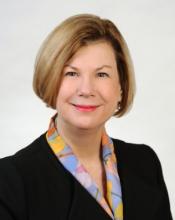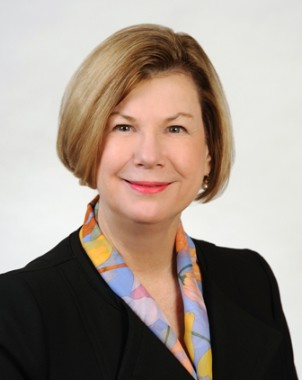User login
Sequestration is causing oncology practices to change how they do business and care for patients, two new surveys show.
The sequester’s 2% Medicare cut began on April 1.
Some 80% of the 500 members surveyed by the American Society of Clinical Oncology said that sequestration has affected their practice. Three-quarters said that they were having trouble paying for chemotherapy drugs.
Half said they were able to continue caring only for Medicare patients who had supplemental insurance. Fourteen percent said they were not seeing Medicare patients at all. Half said that they were sending Medicare patients to outpatient infusion offices, instead of infusing them in their offices.
"It’s encouraging to see that oncologists are currently doing whatever they can to ensure that their patients receive the critical treatment they need under these funding cuts," Dr. Sandra M. Swain, ASCO president, said in a statement. "But patient care is clearly being disrupted in some cases, and practices are under great stress. These early findings may just be the tip of the iceberg."
ASCO is concerned that many patients might be more than just inconvenienced. "Cancer patients are very sick, often elderly, and may struggle with great fatigue and discomfort," Dr. Swain said. "Having to travel just an additional 10 miles and be treated in a larger system can be a traumatic experience."
Oncology research may also suffer under sequestration – a quarter of survey respondents said they were no longer participating in clinical trials.
The ASCO survey was conducted April 23 to May 1. Forty-four percent of respondents practice in the suburbs, 41% in the city, and 16% in rural areas. Practices ranged in size from 1 to 48 full-time medical oncologists.
In a different survey, members of the Community Oncology Alliance indicated that they are struggling under sequestration. About 70% of respondents said they had already made changes to their practices.
"We are now seeing the cascading effects of sequestration," Dr. Mark Thompson, COA president and an oncologist at the Zangmeister Center, Columbus, Ohio, said in a statement. "Many practices are now sending their Medicare patients to hospitals for chemotherapy while others are laying off staff," he said. "Practices are so financially threatened that discussions of merging with a hospital – despite the increase in cost of care to the patients and the system – are being reopened."
Almost half of those surveyed said they were treating only Medicare patients who had supplemental insurance. A third said they were laying off staff or reducing hours. Fifteen percent reported sending Medicare patients elsewhere for treatment and a third said that they were not treating any Medicare patients if the cost of a single drug exceeded the Medicare payment for that drug. Twenty-one percent indicated that they were in talks to be acquired by a hospital or to forge some other kind of agreement to align with other professionals.
More than half of 326 primarily office-based respondents said patients had complained to them about costs, inconvenience, and travel burdens. A third reported that the facility where they referred patients had indicated that they could not handle the additional influx.
The COA estimated that the sequester reduction for chemotherapy drugs was actually increasing cost to the federal government. Sending patients to the hospital for infusions costs Medicare an estimated $592 million, according to the COA, while the sequester saves about $150 in cancer care and drugs.
"The net impact of the sequester cut just to cancer drugs is an increase in federal spending of $442 million to $600 million annualized," the group stated in its survey.
Both the COA and ASCO are urging repeal of sequestration. The oncology community also is backing The Cancer Patient Protection Act of 2013 (H.R. 1416), introduced by Rep. Renee Ellmers (R-NC) in April. The bill would specifically repeal the 2% cut for oncology drugs and restore any payments that were lost due to the sequestration. It has 64 cosponsors, but no hearings have been scheduled on the legislation.
On Twitter @aliciaault
Sequestration is causing oncology practices to change how they do business and care for patients, two new surveys show.
The sequester’s 2% Medicare cut began on April 1.
Some 80% of the 500 members surveyed by the American Society of Clinical Oncology said that sequestration has affected their practice. Three-quarters said that they were having trouble paying for chemotherapy drugs.
Half said they were able to continue caring only for Medicare patients who had supplemental insurance. Fourteen percent said they were not seeing Medicare patients at all. Half said that they were sending Medicare patients to outpatient infusion offices, instead of infusing them in their offices.
"It’s encouraging to see that oncologists are currently doing whatever they can to ensure that their patients receive the critical treatment they need under these funding cuts," Dr. Sandra M. Swain, ASCO president, said in a statement. "But patient care is clearly being disrupted in some cases, and practices are under great stress. These early findings may just be the tip of the iceberg."
ASCO is concerned that many patients might be more than just inconvenienced. "Cancer patients are very sick, often elderly, and may struggle with great fatigue and discomfort," Dr. Swain said. "Having to travel just an additional 10 miles and be treated in a larger system can be a traumatic experience."
Oncology research may also suffer under sequestration – a quarter of survey respondents said they were no longer participating in clinical trials.
The ASCO survey was conducted April 23 to May 1. Forty-four percent of respondents practice in the suburbs, 41% in the city, and 16% in rural areas. Practices ranged in size from 1 to 48 full-time medical oncologists.
In a different survey, members of the Community Oncology Alliance indicated that they are struggling under sequestration. About 70% of respondents said they had already made changes to their practices.
"We are now seeing the cascading effects of sequestration," Dr. Mark Thompson, COA president and an oncologist at the Zangmeister Center, Columbus, Ohio, said in a statement. "Many practices are now sending their Medicare patients to hospitals for chemotherapy while others are laying off staff," he said. "Practices are so financially threatened that discussions of merging with a hospital – despite the increase in cost of care to the patients and the system – are being reopened."
Almost half of those surveyed said they were treating only Medicare patients who had supplemental insurance. A third said they were laying off staff or reducing hours. Fifteen percent reported sending Medicare patients elsewhere for treatment and a third said that they were not treating any Medicare patients if the cost of a single drug exceeded the Medicare payment for that drug. Twenty-one percent indicated that they were in talks to be acquired by a hospital or to forge some other kind of agreement to align with other professionals.
More than half of 326 primarily office-based respondents said patients had complained to them about costs, inconvenience, and travel burdens. A third reported that the facility where they referred patients had indicated that they could not handle the additional influx.
The COA estimated that the sequester reduction for chemotherapy drugs was actually increasing cost to the federal government. Sending patients to the hospital for infusions costs Medicare an estimated $592 million, according to the COA, while the sequester saves about $150 in cancer care and drugs.
"The net impact of the sequester cut just to cancer drugs is an increase in federal spending of $442 million to $600 million annualized," the group stated in its survey.
Both the COA and ASCO are urging repeal of sequestration. The oncology community also is backing The Cancer Patient Protection Act of 2013 (H.R. 1416), introduced by Rep. Renee Ellmers (R-NC) in April. The bill would specifically repeal the 2% cut for oncology drugs and restore any payments that were lost due to the sequestration. It has 64 cosponsors, but no hearings have been scheduled on the legislation.
On Twitter @aliciaault
Sequestration is causing oncology practices to change how they do business and care for patients, two new surveys show.
The sequester’s 2% Medicare cut began on April 1.
Some 80% of the 500 members surveyed by the American Society of Clinical Oncology said that sequestration has affected their practice. Three-quarters said that they were having trouble paying for chemotherapy drugs.
Half said they were able to continue caring only for Medicare patients who had supplemental insurance. Fourteen percent said they were not seeing Medicare patients at all. Half said that they were sending Medicare patients to outpatient infusion offices, instead of infusing them in their offices.
"It’s encouraging to see that oncologists are currently doing whatever they can to ensure that their patients receive the critical treatment they need under these funding cuts," Dr. Sandra M. Swain, ASCO president, said in a statement. "But patient care is clearly being disrupted in some cases, and practices are under great stress. These early findings may just be the tip of the iceberg."
ASCO is concerned that many patients might be more than just inconvenienced. "Cancer patients are very sick, often elderly, and may struggle with great fatigue and discomfort," Dr. Swain said. "Having to travel just an additional 10 miles and be treated in a larger system can be a traumatic experience."
Oncology research may also suffer under sequestration – a quarter of survey respondents said they were no longer participating in clinical trials.
The ASCO survey was conducted April 23 to May 1. Forty-four percent of respondents practice in the suburbs, 41% in the city, and 16% in rural areas. Practices ranged in size from 1 to 48 full-time medical oncologists.
In a different survey, members of the Community Oncology Alliance indicated that they are struggling under sequestration. About 70% of respondents said they had already made changes to their practices.
"We are now seeing the cascading effects of sequestration," Dr. Mark Thompson, COA president and an oncologist at the Zangmeister Center, Columbus, Ohio, said in a statement. "Many practices are now sending their Medicare patients to hospitals for chemotherapy while others are laying off staff," he said. "Practices are so financially threatened that discussions of merging with a hospital – despite the increase in cost of care to the patients and the system – are being reopened."
Almost half of those surveyed said they were treating only Medicare patients who had supplemental insurance. A third said they were laying off staff or reducing hours. Fifteen percent reported sending Medicare patients elsewhere for treatment and a third said that they were not treating any Medicare patients if the cost of a single drug exceeded the Medicare payment for that drug. Twenty-one percent indicated that they were in talks to be acquired by a hospital or to forge some other kind of agreement to align with other professionals.
More than half of 326 primarily office-based respondents said patients had complained to them about costs, inconvenience, and travel burdens. A third reported that the facility where they referred patients had indicated that they could not handle the additional influx.
The COA estimated that the sequester reduction for chemotherapy drugs was actually increasing cost to the federal government. Sending patients to the hospital for infusions costs Medicare an estimated $592 million, according to the COA, while the sequester saves about $150 in cancer care and drugs.
"The net impact of the sequester cut just to cancer drugs is an increase in federal spending of $442 million to $600 million annualized," the group stated in its survey.
Both the COA and ASCO are urging repeal of sequestration. The oncology community also is backing The Cancer Patient Protection Act of 2013 (H.R. 1416), introduced by Rep. Renee Ellmers (R-NC) in April. The bill would specifically repeal the 2% cut for oncology drugs and restore any payments that were lost due to the sequestration. It has 64 cosponsors, but no hearings have been scheduled on the legislation.
On Twitter @aliciaault

